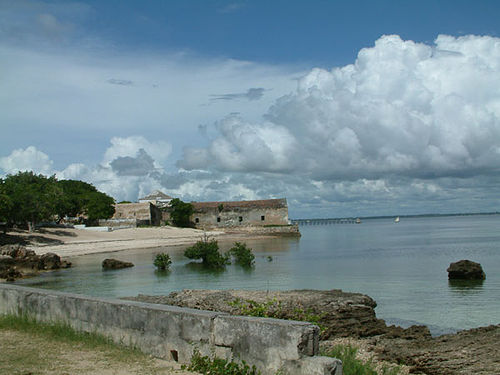Scan barcode
A review by risky_oak
Under the Frangipani by Mia Couto
AFRICAN BOOKS MARATHON
BOOK: 1
TITLE: Under the Frangipani (Portuguese Title: A Veranda do Frangipani)
AUTHOR: Mia Couto
COUNTRY: Mozambique

This was my first novel from Mozambique or from a Sub-Saharan African country in general. It was actually a 150 pages novella filled with magical realism or to be more precise animist realism, an African sub-category of magical realism.
From Wikipedia: Animism is the worldview that non-human entities—such as animals, plants, and inanimate objects—possess a spiritual essence.
Even from the title this was an unusual book, and I was wondering what was this frangipani; then I googled it and found that frangipani is a tree that I see every day from my house; we call it (ινδικό) φούλι in Cyprus. It has a similar smell with jasmine but it has a more intense fragrance.

From the first sentence of the book you are taken by surprise:
”I am the dead man. If I had a cross or a slab of marble, the name Ermelindo Mucanga would feature on it. But I passed away along with my name nearly two decades ago.”
So, the protagonist of the book is a dead man who died 20 years ago at a former Portuguese fort. A spirit in the form of halakavuma (see photo below),

tells him that he (Ermelindo) will possess the mind of a young police officer who arrived at this fort by the sea to investigate a murder. The people at the fort are all old and puzzling. A man-child cursed to grow old at the moment he was born, a witch that turns into water, a young nurse that sleeps stark naked in order to absorb the smell and the energy of the earth and many more.
So you understand this is not just magical (animist) realism but also something more, magical, and also political. The magical dominates the novel with spirits, shadows, a storm-serpent, a bottomless void, and more. The political is more subtle, it is somehow a protest against Portuguese colonialism in Mozambique.
But what makes this novel(la) beautiful is the language. It is poetic and magical. At the beginning you will get a little bit confused on what’s going on, but then you will get used to it. I’ll definitely read more by Mia Couto. 3.7 stars
You can see the complete list of my African Books here:
BOOK: 1
TITLE: Under the Frangipani (Portuguese Title: A Veranda do Frangipani)
AUTHOR: Mia Couto
COUNTRY: Mozambique

This was my first novel from Mozambique or from a Sub-Saharan African country in general. It was actually a 150 pages novella filled with magical realism or to be more precise animist realism, an African sub-category of magical realism.
From Wikipedia: Animism is the worldview that non-human entities—such as animals, plants, and inanimate objects—possess a spiritual essence.
Even from the title this was an unusual book, and I was wondering what was this frangipani; then I googled it and found that frangipani is a tree that I see every day from my house; we call it (ινδικό) φούλι in Cyprus. It has a similar smell with jasmine but it has a more intense fragrance.

From the first sentence of the book you are taken by surprise:
”I am the dead man. If I had a cross or a slab of marble, the name Ermelindo Mucanga would feature on it. But I passed away along with my name nearly two decades ago.”
So, the protagonist of the book is a dead man who died 20 years ago at a former Portuguese fort. A spirit in the form of halakavuma (see photo below),

tells him that he (Ermelindo) will possess the mind of a young police officer who arrived at this fort by the sea to investigate a murder. The people at the fort are all old and puzzling. A man-child cursed to grow old at the moment he was born, a witch that turns into water, a young nurse that sleeps stark naked in order to absorb the smell and the energy of the earth and many more.
So you understand this is not just magical (animist) realism but also something more, magical, and also political. The magical dominates the novel with spirits, shadows, a storm-serpent, a bottomless void, and more. The political is more subtle, it is somehow a protest against Portuguese colonialism in Mozambique.
But what makes this novel(la) beautiful is the language. It is poetic and magical. At the beginning you will get a little bit confused on what’s going on, but then you will get used to it. I’ll definitely read more by Mia Couto. 3.7 stars
You can see the complete list of my African Books here: